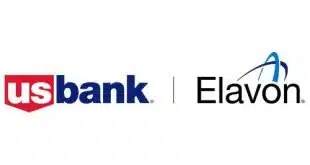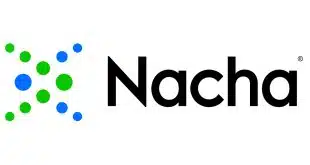Bringing digital technology to campuses can engender loyalty for a lifetime.
Most businesses are facing the new normal of lean operating staff and growing overhead, but colleges and universities have an added hurdle. They must anticipate constantly changing needs and expectations for a tech-savvy and digital-native student market while navigating the limitations of legacy systems, as well as reduced staffing and support services.
In particular, the challenge on college campuses is the delivery of leading-edge solutions in an environment of increased budget pressure. These solutions meet the next generation where they live—on the latest mobile devices—with easy-to-use, reliable, state-of-the-art solutions.
The latest fintech solutions are doing just that. It’s a win-win-win for businesses, colleges, and students. Colleges are modernizing to meet their operational challenges and students are loving life on campus because it’s digital, just the way they expect it to be.
In the House
College is big business. How big? The National Center for Education Statistics lists over 3,000 two- and four-year colleges that together generate nearly $700 billion in revenue. Fintech providers know college is a big opportunity to fundamentally transform the foundations of college-campus operations. They also recognize the importance of helping institutions meet the expectations of the digitally native Gen Z through efficient mobile payments, e-commerce transactions, and daily integrations, such as credentials that create one connected experience.
The company I work for, Transact Campus, facilitates more than $49 billion in payments annually, and has enabled more than $178 million in mobile-credential transactions and 293 million mobile-ordering financial transactions in less than three years.
Gen Z is in the house, and they are shrewd consumers, eager to engage with socially conscious brands. Savvy fintech providers that successfully penetrate this captive college audience are focused on mobile-centric platforms to connect campuses. They have identified three key elements of service:
- for client institutions, a payments system that streamlines tuition, housing, dining, and fees for both foreign and domestic students;
- for students and staff, a credentials system that provides easy access to campus facilities and resources using a mobile interface;
- for partner brands, built-in interfaces with apps and services to build loyalty with a flexible and nimble e-commerce platform that can include campus outlets, retail partners and off-campus
shopping and services.
On college campuses, maximizing 21st-century tech requires system integration that eases the workload for in-house IT departments while benefiting administrators by integrating student information with convenience and safety features such as remote issuance and building lockdown.
Leading fintech providers are bringing campus technology into an integrated platform that includes edtech solutions such as Jenzabar or Anthology, secure payment services from providers including ApplePay, GooglePay, TransferMate, and 529 plan Service Providers, and partners that can provide cloud solutions and security, as Microsoft does, and SaaS, as Ellucian does.
As staff bandwidth on college campuses is increasingly stretched, sometimes beyond capacity, streamlining campus connections using advanced fintech eases transaction friction, which can also reduce staffing needs at many points of contact.
A large audience of new users is refreshed every year as students arrive on campus. And the latest innovations in mobile ordering, digital wallets, payments, and mobile ID can deliver a relevant branded experience and an introduction to financial tools to that continuous stream of new users.
Many young people will have their first interactions with these brands in their college years. A platform that is compatible with their devices and wearables offers a unique opportunity for partners such as Amazon Just Walk Out, GrubHub, Starbucks, Panera, and others to promote fresh products and services to a discerning college audience. It’s also a chance to develop loyalty and engagement early in a student’s purchasing life.
Modernizing Campuses
To illustrate how fintech meets NextGen and can transform higher education, Santa Clara University worked with Transact to implement its full product suite to include Mobile Credential, Mobile Ordering, and Integrated Payments.
The university, founded in 1851 and located in the heart of Silicon Valley, blends high-tech innovation with a social consciousness grounded in the Jesuit educational tradition.
Mobile Credential offers numerous benefits for both the university and its students, from decreasing its carbon footprint by eliminating plastic student ID cards and getting rid of the need to retool locks, to quicker, easier transactions that provide shorter wait times and fewer lines.
Mobile ordering offers just as many upsides and saves students time. The easy-to-use app gives them
the flexibility to order, pay for, and pick up food, books, and other necessities at convenient times in their busy schedules.
With Integrated Payments, Santa Clara University students and family members now have the option to use a single, no-fee online platform for payments. The user-friendly account dashboard can provide online access to manage payments, receive bills, view statements and tax forms, and receive account notifications.
Students and parents are also able to see account information in real time, which eliminates confusion related to payment due dates, balances, and more. At the same time, the ability to accept a variety of tenders, from credit cards, ACH, campus cards, 529 plans, and International Funds Transfer (IFT), has reduced the effort and time it takes to process thousands of paper checks.
Fintech plays a vital role in modernizing campuses and can also drive e-commerce to build brand loyalty with each new generation early on in their buying lives through mobile electronic payments done seamlessly on an integrated connected campus platform.
—Laura Newell-McLaughlin is executive vice president and general manager, integrated payments and campus commerce, at Transact Campus.





